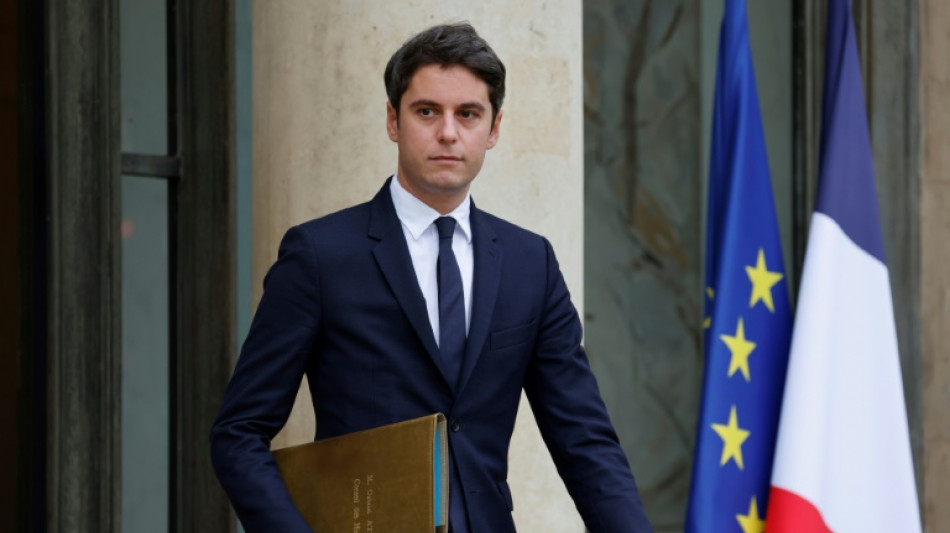
RBGPF
0.1600


Gabriel Attal, named France's youngest ever prime minister Tuesday at the age of 34, has had a meteoric rise that has invoked comparisons with that of his mentor President Emmanuel Macron.
He is also the country's first openly gay French premier whose most pressing task will be to ensure that Macron's centrist forces overcome the far-right -- first in European elections in June and then in presidential polls in 2027.
Attal's more combative style is likely to be a contrast to that of his predecessor Elisabeth Borne, 62, a technocratic figure more comfortable behind the scenes than with the cut and thrust of soundbite politics.
Taking high office at such a young age, Attal has sparked inevitable comparisons to Macron himself, who became France's youngest ever president at the age of 39.
He easily breaks the previous record held by Laurent Fabius, who was named premier by Francois Mitterrand aged 37 in 1984.
French media have even speculated that Attal could succeed Macron at the Elysee Palace in 2027 when the French president hits his term limit.
"Gabriel Attal, a new Macron?" said the French weekly Le Point in September.
Known for his confidence and good looks, Attal has proved himself to be one of the most ambitious ministers in Macron's government.
But despite his relative inexperience, he has earned a reputation as a firm and decisive figure.
Attal is the most popular figure in government, with more than a third backing his appointment as prime minister, according to an Odoxa survey published last week.
"Youth, public opinion and the real or potential capacity to lead the European election campaign made the difference" in the choice, said a source close to the presidency.
"He is popular, young, and he is someone created from scratch by Macron," added a minister, who asked not to be named.
- In political frontline -
Attal has quickly risen through the ranks since entering politics in his early 20s.
He was elected to France's lower house of parliament, the National Assembly, in 2017, and later served as government spokesperson and budget minister.
He was made education minister in July, receiving one of the most high-profile and politically sensitive government posts.
He has made tackling bullying a priority after a series of high-profile suicides of schoolchildren in recent years.
To fight the problem, he teamed up with French First Lady Brigitte Macron, a former teacher, who takes a strong personal interest in the issue.
But his most high-profile move came less than two months into his job when he banned pupils from wearing the abaya, a loose-fitting garment from the shoulders to the feet worn by Muslim women.
"It will no longer be possible to wear an abaya at school," he said.
"Secularism means the freedom to emancipate oneself through school."
Attal's decision has sparked a debate about France's secular rules and whether they are used to discriminate against the country's large Muslim minority.
The move was also seen by many as a ploy to appease conservatives and raise Attal's public profile.
As budget minister, he also used his media savvy to defend Macron's hugely controversial pension reform.
The son of a film producer, Attal grew up in Paris and went to the Ecole Alsacienne, a private school in the heart of the capital, before graduating from the equally elitist Sciences Po university.
Attal, whose father was Jewish, said he had experienced both anti-Semitism and homophobia. He has said in an interview that he is "Russian Orthodox through my mother".
Originally a supporter of the Socialist Party, he shifted to Macron's new centrist movement when it was founded in 2016.
T.Sasaki--JT